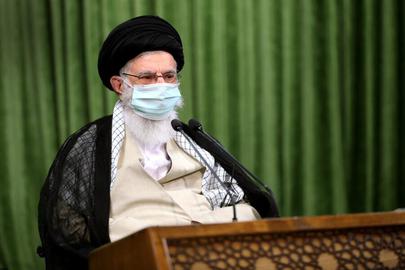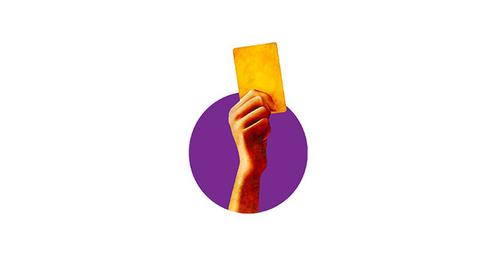The Supreme Leader of the Islamic Republic of Iran has made a number of statements over the years about Resolution 598: the United Nations Security Council’s call for an end to the bloody hostilities of the Iran-Iraq War. But depending on the context, his remarks have been subject to very different interpretations. At a time when those close to Ayatollah Khamenei expect him to come out swinging in confrontation with the United States, a reminder of the resolution – and of the need for peace – may have been the opposite of what they expected.
***
In a speech to mark the 40th anniversary of the start of the Iran-Iraq war, the Supreme Leader of the Islamic Republic of Iran startled some by calling the UN Security Council’s Resolution 598 of January 20, 1987 – and the ceasefire it brought about – a “wise” move.
At the time, Iran’s first Supreme Leader Ayatollah Khomeini had interpreted the adoption of the resolution as drinking a "poisoned chalice.” But in his latest missive, Supreme Leader Ali Khamenei said: “If [this] was not wise, Imam Khomeini would not have done it."
In an online address to mark the anniversary of the war, which he referred to as the "Sacred Defence," he said: “Despite the whole-hearted support that many countries in the world offered to the Ba’athist regime of Iraq, Iran was able to be victorious in the war.”
Over the last 15 years, Khamenei's associates and Revolutionary Guards commanders have repeatedly attacked former president Akbar Hashemi Rafsanjani, one of the architects of the Islamic Republic, accusing him of imposing the peace resolution on Ruhollah Khomeini.
Khamenei, however, had remained silent during the years of the attacks on Hashemi Rafsanjani. Now, five years after Hashemi Rafsanjani's death, he has made similar remarks to him in defense of the resolution.
Likening the Ceasefire with Saddam to the Nuclear Deal
Many of the Supreme Leader’s supporters oppose Resolution 598 and highlight the role Akbar Hashemi Rafsanjani played in its implementation because they regarded it as an act of surrender to the United States; many of them saw advice given by some Iranian officials as an act of compromise with the United States too. This view has been described at length in the book Secret of the Resolution by Kamran Ghazanfari.
Hassan Rouhani, who has been attacked by Ali Khamenei's close associates for joining Iran up to the Joint Comprehensive Plan of Action (JCPOA), known also as the nuclear deal, also played a role in getting the resolution passed in 1988. In fact, three years before the end of the war, Rouhani formed a parliamentary group, the Assembly of Wise Men, tasked with bringing an end to the war.
People in Khamenei's close circles have repeatedly suggested that Hassan Rouhani played the same role that Hashemi Rafsanjani did in the adoption of Resolution 598, and that he also imposed the JCPOA on the Supreme Leader. Their concern, of course, is that accepting the JCPOA would mean a normalization of relations with the United States that would lead to greater concessions.
The role Hashemi Rafsanjani played in the adoption of Resolution 598 always features in official reports on the matter. Less is said about the role Khamenei played. There is a logic to this since Hashemi Rafsanjani was the commander-in-chief during the war. However, there seems to be little evidence that Khamenei actually opposed the resolution.
Resolution 598: The Treaty of Hudaybiyyah
Shortly after the resolution was adopted, Ali Khamenei went to the front line to justify the move to military commanders. Four days after the adoption of Resolution 598 on July 18, 1988, Khamenei compared the situation with the Prophet Mohammad’s peace-making deal with the “infidels,” known as the Treaty of Hudaybiyyah, during Friday prayers.
Later, on June 3, 1996, Khamenei said: "Imam Khomeini’s acceptance of the resolution was due to the list of problems the country's economic advisors presented to him on that day, which showed that the country could not afford to continue the war. The Imam was forced to accept the resolution."
At that time, Hashemi Rafsanjani and Khamenei were in agreement with one other on many issues. In a sense, they were preparing for the post-Khomeini era. And yet today, Khamenei's close allies point to Hashemi Rafsanjani’s stance at the time, and never discuss Khamenei.
"Mr. Hashemi was thinking about power after the Imam and wanted to run the country after him," said former chief commander of the Revolutionary Guards Yahya Rahim Safavi regarding Akbar Hashemi Rafsanjani's efforts to end the war. "He wanted to be in power, and maybe he thought to himself that Iran should not lose everything in the war. He did not want to destroy all the resources of the country because he wanted to maintain his power and continue his rule.”
Two Leaders, Two Crises
The Supreme Leader of the Islamic Republic defends the adoption of Resolution 598. But he has not yet accepted responsibility for the nuclear deal with world powers, and despite the fact that he accepted the JCPOA and allowed it to go ahead, he continues to attack it.
Ayatollah Khamenei's recent remarks about the United States and the JCPOA bear some resemblance to Ayatollah Khomeini's remarks before accepting Resolution 598.
According to some accounts, Ayatollah Khomeini initially opposed the resolution, but during a discussion between officials about the UN resolution, he told Hashemi Rafsanjani and other officials to accept it, and take responsibility for this decision.
According to Hashemi Rafsanjani’s account, Ayatollah Khameini did not accept Ayatollah Khomeini's proposal to accept the resolution and suggested that the heads of three branches of government work together to assent the resolution. Rafsanjani then suggested he would accept the resolution and the responsibility for it, and that Khomeini could later be the judge of this action. Eventually, however, Ayatollah Khomeini accepted responsibility for adopting the resolution.
For Ayatollah Khomeini, accepting the resolution was like taking poison, as he himself had said. After this, he stopped speaking in public.
Today, any number of Khamenei's remarks about Resolution 598 and similar issues can be interpreted as a green light to negotiate with the United States. His remarks regarding "heroic flexibility" became a license to go ahead with the nuclear agreement, especially when economic pressures were similar to the military pressures Iran faced in the final years of the war.
Supreme Leader Ayatollah Khamenei has said that Ayatollah Khomeini's decisions and words about the war in Iraq were proportionate to the situation, and that every decision he made was correct.
If Khamenei wants to emulate Ayatollah Khomeini's logic of accepting the resolution, which he compared with the Treaty of Hudaybiyah, he must agree to reduce tensions with the United States. However, Ali Khamenei's problem with drinking the cup of poison is that he has not yet shown the same self-confidence as Ruhollah Khomeini did in accepting responsibility for the decisions he makes.
visit the accountability section
In this section of Iran Wire, you can contact the officials and launch your campaign for various problems





























comments